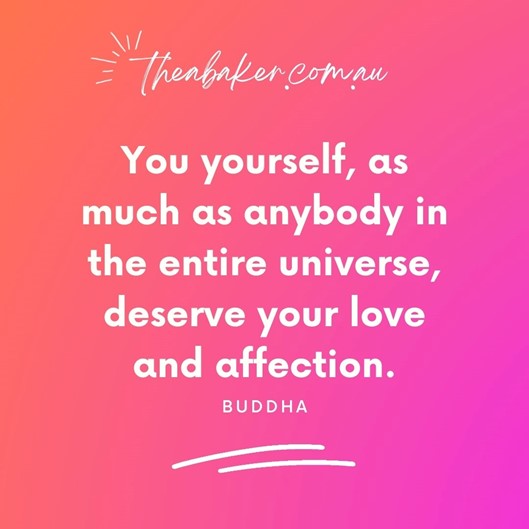Self-appreciation
Self-appreciation
Not a phrase that is used very often, self-appreciation is as misunderstood as it is misused in everyday language. In psychological terms it’s closely associated to self-esteem, self-worth and one of my all-time favourites, self-compassion. As I’m writing this it is Easter Sunday and I’ve spent most of the weekend so far knee-deep in research for a Literature Review that I’m working on for Uni and whilst I’ve been grappling with things that I’ve found difficult and have challenged me, I’ve been acutely aware of my own inner talk. So, this week’s blog is coming straight from a place of personal reflection and learning – I hope it’s helpful to you in some way.
What is self-appreciation:
Having a healthy sense of self isn’t something that comes naturally to most people. Self-appreciation is about recognising the innate value of what lies within you, of being able to value who you are and what you do. It isn’t about striving to be something more, better, or different but appreciating who you already are – being able to acknowledge your beliefs, trust your instincts and accept (oh yes, that little chestnut) both your flaws and successes. We all want to feel special, but we honestly aren’t. When we are constantly striving to shout about our achievements we are acting from a position of self-centredness, not self-appreciation. Self- appreciation is about consciously acknowledging the positive within without the need to comparing yourself to others.
Why self-appreciation is important:
One of the negative beliefs or cognitions that I spend a lot of time talking about with clients is some version of “I am not good enough”. For some people there’s a deep trauma attached to that belief, however for others that belief comes because we let others decide whether or not we are good enough because we seek others acceptance and appreciation of the things we do in our lives. If we were able to turn that inward, appreciating ourselves then we’d be less reliant on others for this sense of self. So the first reason why self-appreciation is important is that it means we are less reliant on others for our sense of self, which in turn means we are less likely to get hurt by people who perhaps do us harm by their assessment of us.
Secondly, researchers have shown that we think more than 50,000 thoughts each day, more than half of which are negative (Wood, 2013). Additionally, we are forced to turn inwards around 35,000 times a day when we are called to make a decision. Imagine if every time we tuned-in to our inner selves in order to make a decision in our lives we were met with a barrage of negative self-talk?
- I am not good enough (there’s that negative belief again)
- I don’t matter to the people I love
- I won’t be able to face it when something goes wrong
- I’ve failed before and I’ll probably fail again
- I’d rather play it safe
Self-appreciation is a practice in positive self-talk. In this way, we would choose to value ourselves for what we already are and the good that comes with that – much in the same way as we might for a friend. And when you appreciate yourself, it’s easier to genuinely appreciate others. We often talk about neural pathways in psychological spaces and essentially, the more we practice positive self-talk by being more appreciative the more able we are to create new neural pathways that lead to positive thoughts – it becomes a virtuous circle.
How to practice self-appreciation:
One approach to developing a better sense of self-appreciation might look like counter-acting that negative self-talk with some positive self-talk might look like internally saying phrases like:
- I am enough
- I am needed and loved for all the good that I am
- I do not abandon myself; I can fill myself with love and support
- I am grateful for my resilience despite my anxieties
- I have so much potential, even if I don’t see my growth right now
In this way we might create an affirmation that we choose to repeat to ourselves every day in order to build a better sense of self-appreciation.
Here’s a great roadmap to greater self-appreciation by the Dalai Lama’s English translator, Thupten Jinpa:
- Listen to your inner-voice: pay attention to both your negative and positive thoughts. Become aware of self-criticism; recognize that thoughts are just constructs. Explore how to reframe negative judgments into more compassionate ones.
- Incorporate an intention practice: You just need two minutes in the morning. Jinpa encourages you to quietly affirm, “This day, I will make my day meaningful. I will as much as possible try to bring conscious intention into my interaction with others. I will as much as possible when the opportunity arises, be kind to others and at least refrain from harming others. I’ll be more mindful. I’ll be caring and concerned for other people in my life. In this way, I’ll make my day meaningful.”
- Practice self-acceptance exercises:Jinpa covers a wide range of exercises — from simple to harder ones — to help you practice compassion toward yourself and others.
- Imagine yourself as a child: When we reconnect to our inner-child, it’s easier to embrace our vulnerability. Self-appreciation needs us to stop seeing ourselves through a perfectionist lens and choose a kind one instead.
- Listen to your narrative:The stories we tell ourselves about ourselves shape our identity. Thus, self-appreciation depends on our narrative. If, when reliving something that happened, you decide to play the role of a victim, you become the victim. Reflect on your narrative. Are you telling the story as it happened or in an overly negative or positive way?
If this blog has brought up something in your life that you’d like the space to explore, we have a team of therapists at Thea Baker Wellbeing and we have IMMEDIATE availability – please reach out to us at: hello@theabaker.com.au / 03 9077 8194.


